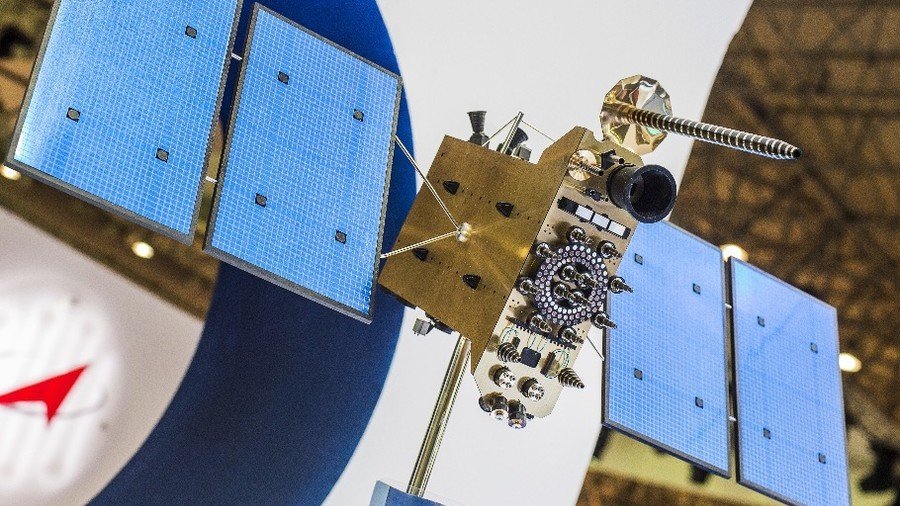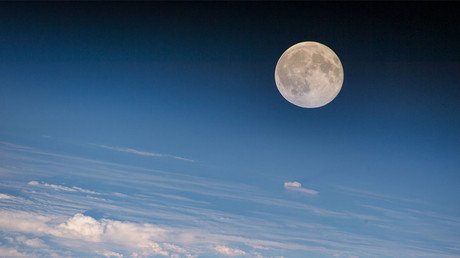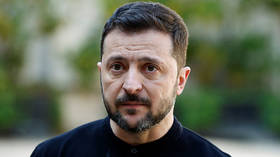Russia & China to merge satellite tracking systems into one global navigation giant

Moscow and Beijing will team up to create an integrated navigation system based on Russia’s Global Navigation Satellite System (GLONASS) and the Chinese BeiDou. The system will cover most of Eurasia.
The countries will reportedly negotiate the merger in May at the International Conference on Advanced Technologies in Manufacturing and Materials Engineering in the Chinese city of Harbin, Izvestia daily reports.
The initiative to merge the two separate systems is the result of a proposal made by the Chinese authorities to the Russian Federal Space Agency, Roscosmos. It is intended to create a joint global navigation satellite system, covering the countries of the Shanghai Cooperation Organization, which include China, Kazakhstan, Kyrgyzstan, Russia, Tajikistan, Uzbekistan, India and Pakistan.
The new system will allow the partners to share data on the positions of navigation satellite groups, improve working efficiency in a real-time environment, and to exchange corrections, where necessary. At the same time, Russian GLONASS may significantly broaden its user base.
“If the project is implemented, it will allow for an improvement in accuracy for both systems,” said a Roscosmos spokesperson, as quoted by the media.
If successful, the project will divide the entire world into two zones of influence by two united systems GLONASS-BeiDou and GPS-Galileo, operated by the US and the European Union, according to Andrey Ionin, a member of the Russian Academy of Cosmonautics.
Global Positioning System (GPS), the world’s oldest Global Navigation Satellite System, began operations in 1978 to provide location information and navigation to missile submarines and surface ships. The system was also used for hydrographic and geodetic surveying by the US army. The system was opened to civilian and commercial use in 1994. GPS currently operates 31 satellite constellations.
China becomes first foreign country allowed to invest in Russian uranium mining https://t.co/GZvY893Cd8pic.twitter.com/hDly2ShTbJ
— RT (@RT_com) March 13, 2018
Russia’s GLONASS became operational in 1993. The navigation system has 27 satellites in orbit and all are operational. It is run by the Russian Aerospace Defense Forces and is currently the second alternative navigational system in operation.
Galileo is the European global navigation system, which is available for civilian and commercial use. It is a joint project by the European Space Agency and the European GNSS Agency. At present, there are 22 operational satellites out of a projected 30. Galileo started working in 2016 and is expected to reach full operational capability by 2020.
Chinese BeiDou was put into operation 2000 with limited coverage and navigation services offered mainly to users in China and neighboring regions. The system currently has a total of 22 operational satellites in orbit and the full constellation is projected to reach 35 satellites.
Largest petrochemicals firm in Russia will construct new plant in Far East to target Chinese market https://t.co/TMzWjoaF86
— RT (@RT_com) March 20, 2018
Japan and India are also developing their own regional navigation satellite systems. The Japanese Quasi-Zenith Satellite System (QZSS) is currently under construction. This is expected to become fully operational by the end of the current year. It will have seven satellites and four have already been sent into orbit.
The Indian Regional Navigation Satellite System (IRNSS) covers India and nearby regions, extending up to 1,500km. Its seven satellites are currently in orbit, but the first one has been out of operation after all rubidium atomic clocks on board failed in 2017.
For more stories on economy & finance visit RT's business section
















